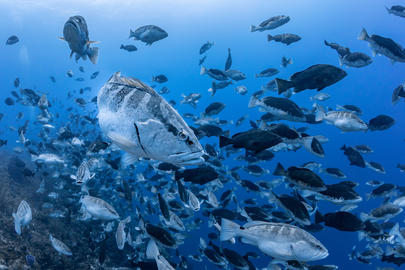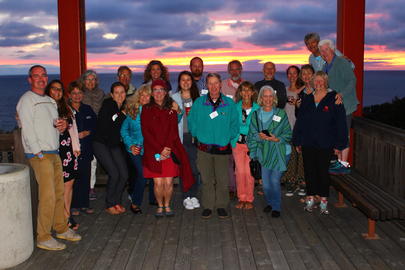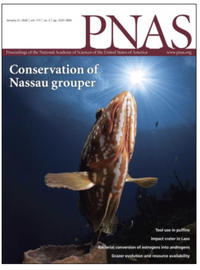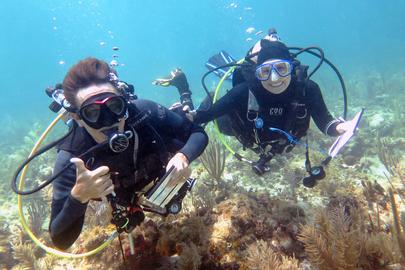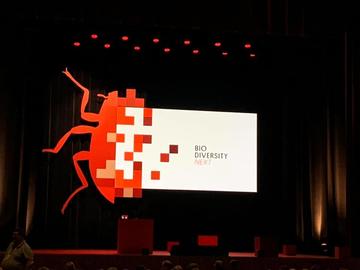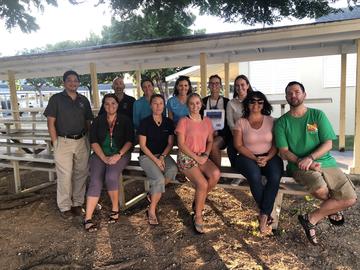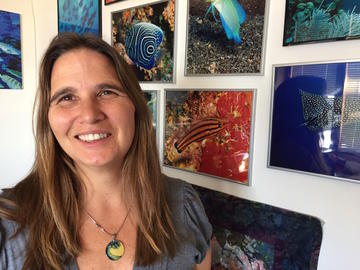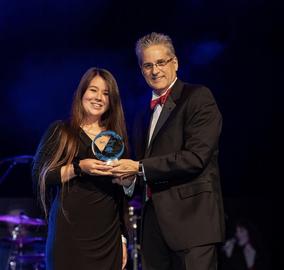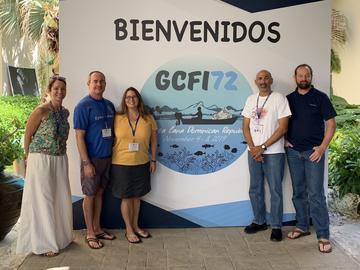While everyone knows that marine mammals are well known sound producers, did you know that many fish species also produce and use sound to sense their environment? Marine environments are teeming with underwater sounds from animals, human activities (shipping, costal development, oil and gas exploration etc.), and geological processes such as rain, wind, and water flow. The combination of the sounds, called a soundscape, can be used to study the ecology of animals that produce, hear, or respond to sound.
Last month we successfully conducted our 19th year of the Grouper Moon Project. Around the winter full moons each year, our field team joins forces in the Cayman Islands to study one of the last remaining, and largest currently known, spawning aggregations of the endangered Nassau Grouper. Since 2001, REEF and the Cayman Islands Department of Environment have collaborated on this project.
To celebrate our sustaining donors and most active volunteer surveyors, we annually host REEF by the Sea during the first weekend in March. This year's celebration took place earlier this month in San Diego, California. This invitation-only event included three days of presentations, socials, and guided tours of facilities around the Scripps Institution of Oceanography campus.
We are excited to share a conservation success story for the critically endangered Nassau Grouper. After nearly two decades of research and monitoring efforts, the Grouper Moon team published key results last month in the prestigious journal Proceedings of the National Academy of Sciences.
As 2020 gets underway, here are a few 2019 highlights from the Volunteer Fish Survey Project, REEF's citizen science marine life monitoring program, as of Jan 5, 2020.*
698 volunteer surveyors conducted and submitted 11,065 surveys in 2019. This number will definitely rise as members catch up on their backlog of data entry.
An additional 1,329 surveys were submitted in 2019 that were conducted in previous years.
Earlier this fall, REEF's Director of Science, Christy Pattengill-Semmens, attended the Biodiversity_Next conference in the Netherlands, joining over 700 other participants from 76 countries. The conference brought together major international organizations, research scientists, and policy makers to jointly identify "socio-technical bottlenecks and horizon-scan opportunities around data-intensive biodiversity and geodiversity research". Put more simply, building a global infrastructure for biodiversity data.
In November 2019, REEF and the Cayman Islands Department of the Environment (DOE) presented Grouper Education Program teacher workshops on Grand Cayman and Cayman Brac in the Cayman Islands. The workshops, led by Grouper Moon educator, Todd Bohannon, and Bradley Johnson from DOE, provided educators with a marine science curriculum based on the Grouper Moon Project for intermediate/elementary and high school students.
REEF's Director of Science, Dr. Christy Pattengill-Semmens, was voted on to the Board of Directors of the Gulf and Caribbean Fisheries Institute (GCFI) at the GCFI Conference earlier this month.
We are excited to share that REEF’s Amy Lee was awarded the Diving Equipment & Marketing Association (DEMA)'s Wave Makers award for 2019 last weekend at the DEMA Show in Orlando, Florida. She was selected for this early career award for the impact she is having through conservation and education initiatives in the dive industry. Amy is REEF’s Trips Program and Communications Manager and has been part of our staff team since 2015. Through all aspects of her work, Amy strives to merge her passions for diving, communication, science, and travel.
REEF staff and partners just returned from the annual Gulf and Caribbean Fisheries Institute (GCFI) conference, held this year in the Dominican Republic. REEF’s programs and data were represented to the GCFI community by REEF Director of Science, Christy Pattengill-Semmens, and REEF Invasive Species Program Manager, Alli Candelmo, as well as our partners from Scripps Institute of Oceanography (Brice Semmens), Oregon State University (Scott and Selina Heppell), and Cayman Island Department of Environment (Bradley Johnson).

